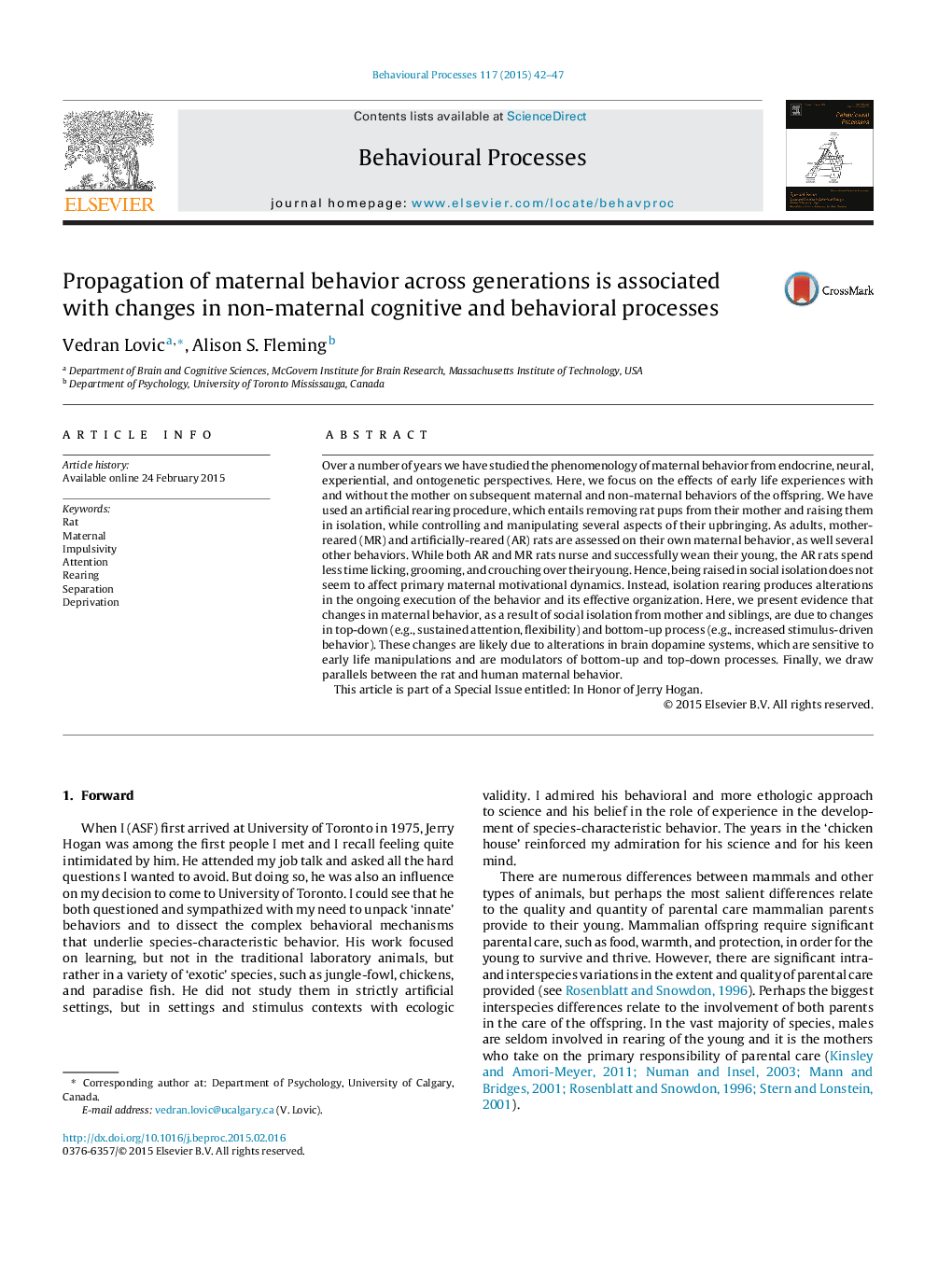| کد مقاله | کد نشریه | سال انتشار | مقاله انگلیسی | نسخه تمام متن |
|---|---|---|---|---|
| 2426552 | 1553163 | 2015 | 6 صفحه PDF | دانلود رایگان |
• Early social isolation in rats disrupts quality of maternal behavior but not basic maternal ‘motivation’.
• Quality of maternal behavior is related to sustained attention, flexibility and impulse control.
• Early social isolation disrupts these executive functions and hence maternal behavior.
• Similar processes have been described in human mothers with difficult early experiences in family of origin.
Over a number of years we have studied the phenomenology of maternal behavior from endocrine, neural, experiential, and ontogenetic perspectives. Here, we focus on the effects of early life experiences with and without the mother on subsequent maternal and non-maternal behaviors of the offspring. We have used an artificial rearing procedure, which entails removing rat pups from their mother and raising them in isolation, while controlling and manipulating several aspects of their upbringing. As adults, mother-reared (MR) and artificially-reared (AR) rats are assessed on their own maternal behavior, as well several other behaviors. While both AR and MR rats nurse and successfully wean their young, the AR rats spend less time licking, grooming, and crouching over their young. Hence, being raised in social isolation does not seem to affect primary maternal motivational dynamics. Instead, isolation rearing produces alterations in the ongoing execution of the behavior and its effective organization. Here, we present evidence that changes in maternal behavior, as a result of social isolation from mother and siblings, are due to changes in top-down (e.g., sustained attention, flexibility) and bottom-up process (e.g., increased stimulus-driven behavior). These changes are likely due to alterations in brain dopamine systems, which are sensitive to early life manipulations and are modulators of bottom-up and top-down processes. Finally, we draw parallels between the rat and human maternal behavior.This article is part of a Special Issue entitled: In Honor of Jerry Hogan.
Journal: Behavioural Processes - Volume 117, August 2015, Pages 42–47
